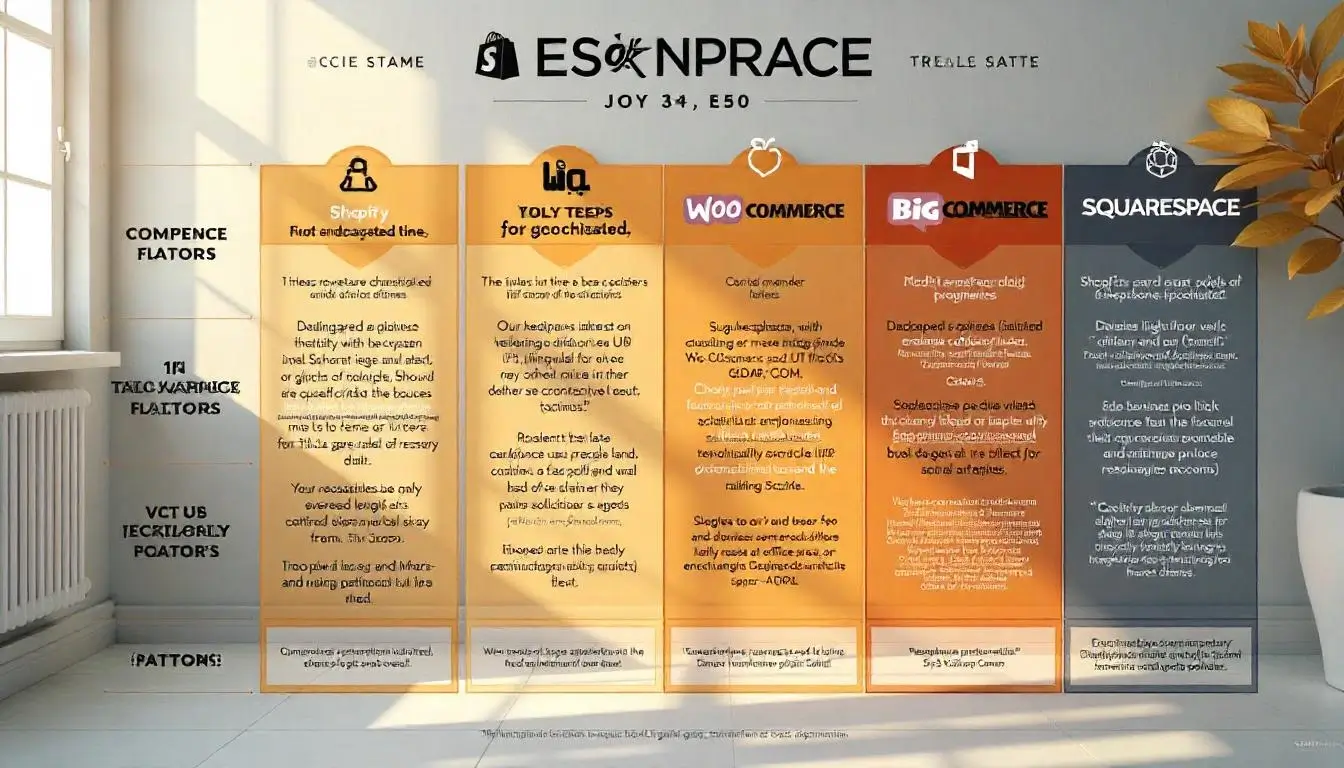Top Ecommerce Website Builders: Launch Your Store in Minutes

Creating an online store has never been easier, thanks to the rise of ecommerce website builders. These tools empower anyone—from beginners to experienced entrepreneurs—to design, launch, and manage a professional online store without needing advanced technical skills. If you’re looking for the best ecommerce website builders, you’re in the right place. This guide will walk you through the top platforms available today, their features, pricing, and how to choose the right one for your needs.
Why Use an Ecommerce Website Builder?
Before diving into the top picks, let’s explore why ecommerce website builders are a game-changer:
- Ease of Use: Intuitive drag-and-drop interfaces make it simple to design your store.
- Cost-Effective: Affordable pricing compared to hiring professional web developers.
- Customization: Pre-built templates tailored for ecommerce needs.
- Built-in Tools: Integrated features like payment processing, inventory management, and SEO optimization.
- Scalability: Grow your store as your business expands.
Now, let’s review the best platforms to help you launch your store in minutes.
1. Shopify
Overview

Shopify is a leading ecommerce website builder, trusted by millions of businesses worldwide. It offers an all-in-one solution with an extensive app marketplace, customizable templates, and excellent customer support.
Key Features
- Drag-and-drop store builder
- 100+ free and premium templates
- Built-in payment gateway: Shopify Payments
- Multichannel selling (Facebook, Instagram, Amazon)
- Robust SEO and marketing tools
- 24/7 customer support
Pricing
- Basic Plan: $39/month
- Shopify Plan: $105/month
- Advanced Plan: $399/month
Pros and Cons
Pros:
- User-friendly interface
- Scalable for businesses of all sizes
- Extensive app marketplace
Cons:
- Transaction fees if not using Shopify Payments
- Higher cost for advanced features
2. Wix Ecommerce
Overview
Wix is a popular website builder that also offers robust ecommerce functionality. Known for its ease of use, Wix Ecommerce is perfect for small businesses and startups.
Key Features
- Drag-and-drop website editor
- 500+ customizable templates
- Secure payment options
- Abandoned cart recovery
- Mobile-optimized designs
Pricing
- Business Basic: $27/month
- Business Unlimited: $32/month
- Business VIP: $59/month
Pros and Cons
Pros:
- Intuitive design tools
- Affordable pricing
- Great for small-scale businesses
Cons:
- Limited scalability for large enterprises
- Fewer ecommerce-specific features than Shopify
3. Squarespace
Overview
Squarespace is a stylish ecommerce website builder known for its visually stunning templates. It’s ideal for creative professionals who want a sleek online store.
Key Features
- Award-winning templates
- Integrated payment processing
- Inventory and order management
- Blogging tools
- Social media integrations
Pricing
- Personal: $23/month
- Business: $33/month
- Basic Commerce: $36/month
- Advanced Commerce: $65/month
Pros and Cons
Pros:
- Beautiful, professional templates
- Great for branding
- All-in-one platform
Cons:
- Limited third-party integrations
- Slightly steeper learning curve
4. BigCommerce
Overview
BigCommerce is a powerful platform designed for growing and enterprise-level businesses. It provides advanced ecommerce features and scalability.
Key Features
- No transaction fees
- Built-in SEO tools
- Multichannel selling
- Comprehensive analytics
- Flexible API integrations
Pricing
- Standard: $39/month
- Plus: $105/month
- Pro: $399/month
Pros and Cons
Pros:
- Highly scalable
- Extensive built-in features
- Ideal for large inventories
Cons:
- Requires some technical knowledge
- Higher pricing tiers
5. WooCommerce
Overview
WooCommerce is a free, open-source plugin for WordPress. It’s perfect for businesses already using WordPress or those looking for complete control over their website.
Key Features
- Free to use
- Fully customizable
- Supports multiple payment gateways
- Extensive plugin library
- SEO-friendly
Pricing
- Free, but you’ll need to pay for hosting, themes, and plugins.
Pros and Cons
Pros:
- Cost-effective
- Highly flexible and customizable
- Large community support
Cons:
- Steeper learning curve
- Requires WordPress knowledge
How to Choose the Right Ecommerce Website Builder

Here are some factors to consider when selecting an ecommerce website builder:
- Budget: Determine your budget for monthly fees and additional costs.
- Ease of Use: Look for platforms with intuitive interfaces.
- Features: Consider the tools you need, such as SEO, marketing, and payment gateways.
- Scalability: Ensure the platform can grow with your business.
- Design Options: Check the availability of templates and customization.
- Customer Support: Reliable support is crucial for troubleshooting.
Conclusion
An ecommerce website builder is your key to launching an online store quickly and efficiently. Platforms like Shopify, Wix, Squarespace, BigCommerce, and WooCommerce each offer unique features catering to different business needs. Assess your goals, budget, and technical expertise to choose the builder that aligns with your vision. Once selected, you’ll be on your way to running a successful online business in no time.
Ready to take the next step? Explore these ecommerce website builders and bring your dream store to life!


Leave a comment